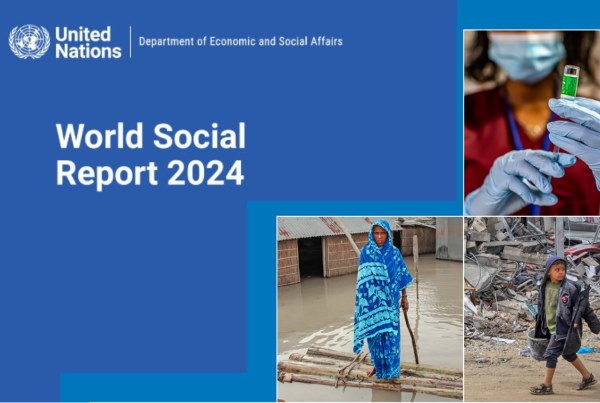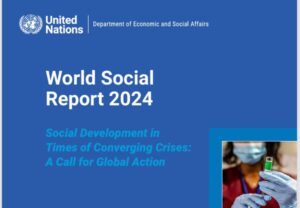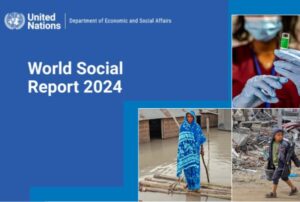Social Development Under Threat: Insights from the World Social Report 2024

The World Social Report 2024 warns that global social development is increasingly at risk due to the convergence of recurrent crises like climate change, economic instability, and the COVID-19 pandemic. These crises have not only reversed progress in poverty reduction and inequality but have exacerbated existing vulnerabilities. The report underscores the importance of strengthening social protection systems, addressing global inequality, and improving international cooperation to mitigate the impacts of future crises.
Rising Global Crises and Social Development
Crises are becoming more frequent, interconnected, and intense, which is threatening to undo decades of progress in global development. The World Social Report 2024 highlights that these crises, especially economic shocks, climate change, and global health emergencies like the pandemic, disproportionately affect vulnerable populations and regions. The report specifically notes that between 2020 and 2024, extreme poverty has increased, with 122 million more people facing hunger than before the pandemic.
One of the primary concerns raised in the report is that crises that were once confined to specific regions now ripple across global systems, resulting in widespread economic losses and social instability. For instance, the impacts of climate change are evident in the increasing frequency of natural disasters that exacerbate food insecurity, push people into poverty, and further strain national economies.
Gender Inequality Worsens Amid Crises
Women and vulnerable groups have been disproportionately affected by these crises. The World Social Report 2024 notes that women, particularly in low-income countries, face higher job losses and health risks during crises. As unemployment rates rise and social safety nets weaken, women are often left out of recovery efforts, widening the already significant gender gap in many developing nations.
Food Insecurity and Hunger on the Rise
A significant takeaway from the report is the alarming rise in food insecurity. According to the World Social Report 2024, food insecurity has been exacerbated by the climate crisis and global economic instability. Between 2020 and 2022, the world saw a steep rise in hunger, with over 122 million additional people facing chronic food insecurity.
The Role of Social Protection Systems
The report highlights that social protection systems remain one of the most effective tools for mitigating the effects of crises. However, it points out that nearly 4 billion people worldwide lack access to social safety nets, leaving them vulnerable to future shocks(DESA-World-Social-Repor…). Expanding social protection coverage is key to building resilience in low-income and vulnerable populations. The report estimates that achieving universal social protection in developing countries by 2030 would cost around $1.4 trillion, or 3.3% of their GDP, but would create a more secure and equitable world.
Climate Change: A Crisis Multiplier
Climate change is identified as a major multiplier of global crises, further intensifying economic, food, and health risks. The report predicts that the frequency and severity of climate-related disasters will increase, especially in developing regions reliant on agriculture. It calls for urgent global action to mitigate climate change’s effects and prevent further social destabilization.
A Call for International Cooperation
While national-level efforts are critical to advancing social development, the World Social Report 2024 stresses that international cooperation is crucial. Countries facing economic instability and rising debt need global support to create fiscal space for social investments. It also recommends creating global early warning systems to detect crises early and minimize their impact.
Conclusion: Building Resilience for the Future
The World Social Report 2024 presents a sobering view of the challenges ahead but also provides a roadmap for building a more resilient and equitable global society. By prioritizing inclusive policies, strengthening social protection, and enhancing international cooperation, the world can mitigate the impact of future crises and continue making progress toward sustainable development. The report underscores the urgency of acting now to safeguard social development and build a fairer world for all.





